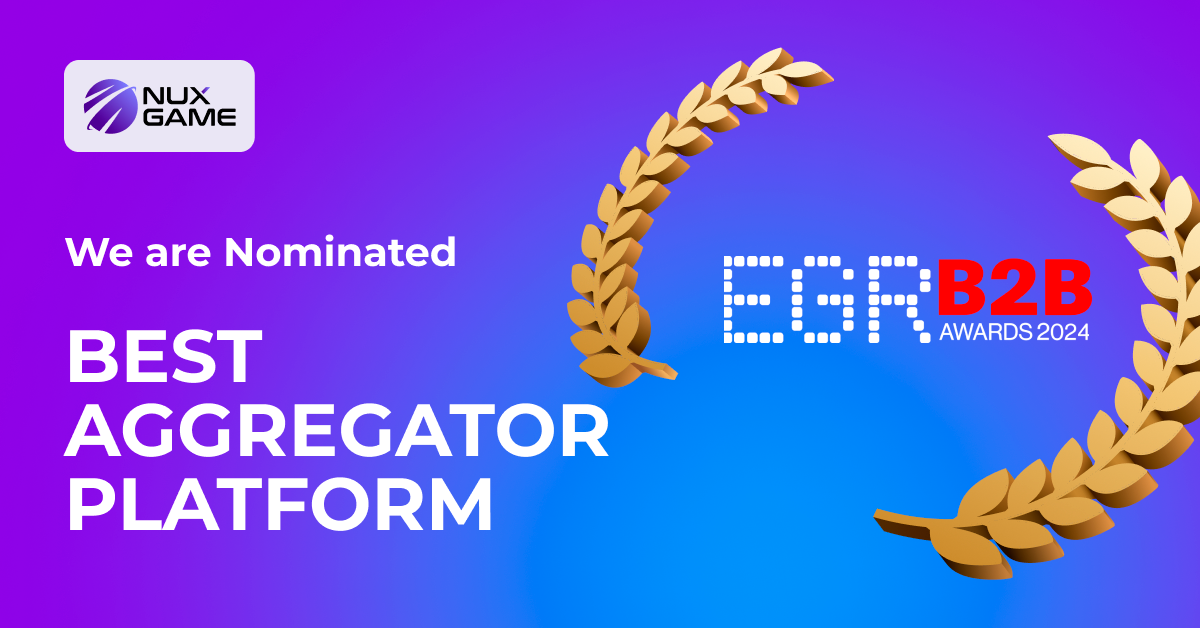Industry News
How can the regulated gambling industry fight the black market?

Do marketing restrictions send players offshore? Gambling trade bodies say restricting advertising for regulated operators helps illegal operators, while gambling opponents say advertising must be lowered to prevent problem gambling and exposing youngsters to gambling.
Before we kick off, let’s clarify; when we mention offshore or black market gambling sites, we are referring to online casinos and sportsbooks that do not hold a licence in their jurisdiction. These unregulated sites expose players to various risks as safer gambling protections are not in place; they also remove tax and revenue from the formal market.
The “growing” global black market
The past year has seen a wealth of hair-raising statistics regarding the rise of offshore gaming in response to an ever-stricter regulatory environment. In February, the Betting and Gaming Council (which represents 90% of legal UK operators) commissioned research on the European and UK offshore landscape. In December, the American Gambling Association released its latest data detailing offshore gaming in the USA.
Both reports revealed that large amounts of revenue are being spent at offshore gambling sites rather than in the formal economy. PwC, who researched on behalf of the BGC, even went as far as to conclude, “whilst it is not possible to isolate the impact of individual regulatory characteristics, the assessment suggests that jurisdictions with a higher unlicensed market share tend to exhibit one or more restrictive regulatory or licensing characteristics.”
So what exactly does the black market look like in the European and American gambling markets?
Europe
- UK: The number of players using offshore sites has doubled in two years, from 220,000 to 460,000.
- Norway: 66% of gambling revenue goes to the black market. There are already stake limits, affordability checks and advertising bans in place.
- Sweden: 38% of self-excluded players move to offshore casinos to keep gambling.
- France: 57% of gambling is at offshore sites.
- Italy: 23% of players use offshore sites.
- Spain: the black market has a 20% share.
America
- Americans spend more than $510.9bn yearly with illegal (unlicensed) operators. This costs the regulated industry $44.2bn in revenue, with over $13.3bn lost tax revenue.
- The total offshore spending was broken down, with $63,8bn on sports betting, $337.9b on casino iGaming and $109.2 b on unregulated gaming machines.
- This equates to almost 40% of the US sports betting market. Still, more shockingly, the illegal iGaming market is nearly three times the size of the legal iGaming market (only six US states currently allow legal online casino gaming – New Jersey, Pennsylvania, Delaware, Connecticut, Michigan and West Virginia) and nearly half (48%) of Americans that have played online in the last year, did so at an offshore casino.
- The report commented that the gambling industry was among the most regulated industries in the US; “Whether it is financial solvency and other licensing requirements, know your customer or anti-money laundering regulations, legal gaming operators and suppliers comply with thousands of laws and regulations designed to ensure consumer protections and confidence in the gaming market.”
Is an advertising ban on the cards?
The UK already has strict advertising and marketing rules in place for regulated gambling operators. These are currently governed by the 2005 Gambling Act, which states that gambling adverts must be in-line with responsible gambling rules and must not:
- “Portray, condone or encourage gambling behaviour that is socially irresponsible or could lead to financial, social or emotional harm.
- Exploit the susceptibilities, aspirations, credulity, inexperience or lack of knowledge of children, young persons or other vulnerable persons.
- Suggest that gambling can be a solution to financial concerns.
- Link gambling to seduction, sexual success or enhanced attractiveness.
- Be of particular appeal to children or young persons, especially by reflecting or being associated with youth culture.
- Feature anyone gambling or playing a significant role in an advert if they are under 25 years old (or appear to be under 25).”
Alongside these rules, operators, through the BGC, have also implemented the Code for Socially Responsible Advertising (which increases the standards that all operators agree to abide by and provides them with a range of measures that enhance the social responsibility of their advertising), and a whistle-to-whistle ban on sports ads (this has reduced the number of 4 to 17-year-olds by 97%).
In April this year, the Advertising Standards Authority also announced a ban on gambling ads featuring celebrities, sports stars and social media influencers popular with those under 18s. Hence, there are already strong marketing regulations in place, many of which have been created and led by operators.
Between 2005 and today, the government’s attitude to gambling has changed. In 2005, the Gambling Act made it possible for gambling adverts to air on TV after the watershed for the first time (lottery and bingo aside, these have always been able to advertise during any time of the day), reflecting the position that “gambling had become a mainstream leisure activity”. Now, regulations are seeking to curb advertising, and the government’s approach to gambling is increasingly one of public health.
For the most part, recent advertising rules have focused on protecting those under 18 from gambling exposure. It is, therefore, difficult to discuss the effects of more significant marketing restrictions further. However, it is safe to assume that if the Gambling Review restricts the regulated market and legal operators from targeting and reaching customers due to more advertising regulations, while illegal operators can, offshore revenue will increase.
To add flavour to this debate, we can look at other recent or potential future regulatory changes, such as compulsory spending limits and the prohibition of bonuses, to see how more regulation could affect offshore gambling.
Player responses to compulsory spending limits
Spending limits and per-player budgets are expected to be a major component of the Gambling Review. In Norway, these measures are already in place. Norway was once heralded as a shining example of a gambling jurisdiction with high regulation, but it now has a black market share of 66%, the highest in Europe, which the BGC research attributes to the increasing regulatory standards.
In the UK, the BGC used a YouGov survey that asked gamblers what they would do if the UK introduced compulsory spending limits and affordability checks:
- 67% of respondents would opt for an offshore site should this measure be introduced
- 64% also said that they feared the increased use of illegal sites would trigger a rise in problem gambling.
- Lastly, 70% said they would not be prepared to conduct affordability checks (the poll did not define what was meant by affordability checks, which could affect the reliability of the answers, as there is considerable concern over this.
Regulators have stressed that potential affordability checks would be non-invasive). The data gathered from this poll are pretty shocking and show quite clearly that UK players would respond to spending limits by leaving the formal market, despite the risks posed.
Bonuses under the regulatory hammer
The marketing of bonuses has been an area of contention for the UKGC. In the past, the Commission has updated the LCCPs to ensure that gambling sites advertise bonuses clearly and that the terms and conditions are easily understandable and explained. Furthermore, in 2022, they updated their guidance on fair terms and practices, highlighting problematic terms favouring operators. They also underlined high wagering requirements as causing excessive play and urged operators to review their bonuses and fall in line.
However, some anti-gambling campaigners believe an outright ban on player promotions is the way forward, despite, according to the BGC, 69% of customers disagreeing and one in three gamblers saying they would consider black market betting if promotions and bonuses were banned at licensed online gambling sites.
Banning all bonuses is an extreme measure, and we would argue unwarranted, as there is a better way forward, which is well demonstrated by the many examples of affiliates and operators promoting bonuses that are fair and do benefit players, such as free spins with no wagering requirements. Bonuses are a large part of the player experience when gambling online, and while there is a need for some regulation, such as capping wagering requirements, an outright ban is likely to damage the legal industry and undoubtedly give more reasons for consumers to move to the illegal market.
As bonuses are such a vital area of an online gambler’s experience, it’s unlikely we’ll see an outright ban in the upcoming Gambling Review. However, it’s probable that high wagering requirements will be covered and restricted as well as more rules regarding how bonuses are advertised.
Do consumers know the difference between onshore and offshore?
Theoretically, if legal gambling sites are regulated to the point that they cannot advertise, while offshore sites can, it’s likely that players will opt for the offshore site purely through exposure. What’s more, distinguishing between a legal and illegal gambling site is no easy task for many players.
The American Gambling Association found during their annual survey for 2019-2020 that there was “widespread confusion” between legal and illegal operators in the US. Although 74% of respondents said it was important only to use onshore sites, 52% had gambled offshore, and 55% of those who bet offshore believed they were using a US-licensed site. Meanwhile in Sweden, only 10% of players are able to spot a licensed vs offshore gambling site.
This prompts the question; are players making a conscious choice to gamble offshore, or is it simply that offshore gambling sites seem more attractive due to their lack of adherence to gambling laws? And if consumers are simply picking sites based on the product and services, then the alternative to illegal gambling must be competitive and attractive.
Do more restrictions mean safer gaming – the prohibition fallacy?
Anti-gambling lobbyists and campaigners have for a long time purported that more regulation means increased safety and protection for players. Still, according to the research presented by gambling trade bodies in multiple markets, this doesn’t seem to hold valid, and it could, in fact, have the opposite effect, providing more stimulus to gambling offshore.
For operators, proportionality and an evidence-led approach are the way forward. Regulation needs to offer protection without removing player choices and the central element of online gambling – the fun. Plus, regulation shouldn’t be overly invasive because if and when it passes this tipping point, the black market begins to present a more attractive option for players, offering what seems to be better products, bonuses and games.
While we cannot give a concrete answer as to whether more marketing restrictions on regulated gambling help the black market, we can undoubtedly advocate for regulators to take note of the growing offshore economy in response to heightening regulations, whether that’s concerning the market or other areas. On top of this, the whole industry must also work harder to ensure that players can discern legal and safe gambling sites from those that are not.
Casino Games
BetMGM is launched in the Netherlands, bringing an authentic Vegas experience to the Dutch market

The golden Vegas offerings and entertainment of BetMGM is coming to the Netherlands, following a successful launch in the UK. BetMGM will offer a best-in-class Las Vegas experience to deliver a new golden era of online casino and sports betting in the Netherlands. Leveraging LeoVegas Group’s proprietary technology and platform, the launch marks a significant step in the brand’s international expansion.
BetMGM, the entertainment and sports brand known for its golden offerings and authentic Vegas experience, is launching in the Netherlands. The new brand is set to provide customers with exciting new product features, including large-scale jackpots, loyalty rewards, exclusive slots, as well as unique and compelling sports promotions. Utilising LeoVegas Group’s proprietary technology and platform, this expansion into the Dutch market represents the second European launch, succeeding a well-received rollout in the United Kingdom.
Gary Fritz, President of MGM Resorts International Interactive, said “We are thrilled to launch BetMGM in the Netherlands and build on BetMGM’s successful expansion into global markets. The Dutch market offers an exciting opportunity and will be an important part of our international expansion efforts and strategy to become a global gaming leader.”
Gustaf Hagman, Group CEO at LeoVegas Group, said “Our launch in the UK was tremendously successful, and we eagerly anticipate bringing the golden Vegas experience to the Netherlands. This launch in the Dutch market is an important step in our international expansion, but we have much more in store.”
Industry News
“Royal Flash” Unveiled by PopOk Gaming – An Exciting Journey Back to Classic Slot Gaming!

PopOK Gaming, a trailblazer in the world of iGaming, is happy to announce the launch of their latest slot game, “Royal Flash.” This classic-style slot game takes players on a fruity escapade, promising an exhilarating journey filled with excitement and grand wins fit for royalty.
Drawing inspiration from traditional fruit machines, “Royal Flash” exudes classic charm with its timeless design and iconic symbols. Set across 5×3 reels and featuring 10 paylines, this game is adorned with familiar fruit symbols such as strawberries, cherries, grapes, and the illustrious Seven symbol.
But the real excitement lies in the gameplay – each Wild symbol that graces the reels expands to form a Wild reel, ramping up the intensity and offering thrilling win potential with every spin. Additionally, keep a keen eye out for the coveted gold bar symbol; landing three or more unlocks a prize from any position on the reels, adding an extra layer of thrill to your gaming experience.
Players can expect to bask in the glory of majestic wins, with the opportunity to claim up to 1,500 times their bet in this modernized twist on a retro-inspired classic. Whether you’re a seasoned slot enthusiast or a newcomer to the world of gaming, “Royal Flash” promises an unforgettable adventure filled with excitement, thrills, and the chance to win big!
Experience the Majesty of “Royal Flash” Today!
Industry News
NuxGame’s Aggregation Platform shortlisted in EGR B2B Awards

NuxGame, the experienced betting and casino software provider, has been recognised at this year’s EGR B2B Awards, receiving a nomination for its Aggregation Platform.
The EGR B2B Awards is one of the most esteemed events in the industry and this shortlisting solidifies NuxGame’s status as a leading casino software supplier and a one-stop shop for casino operators.
Winners are to be selected by a panel of industry experts ahead of the ceremony at The Roundhouse in London on 13th June.
NuxGame’s aggregation platform boasts over 13,600 slots titles from 135 leading providers, which has recently been bolstered thanks to partnerships with the likes of 3 Oaks Gaming, Vivo Gaming and Hacksaw Gaming.
The nomination follows a strong year for the provider, which has made strides in player retention and acquisition tools for its aggregation platform customers with features such as free spins, network tournaments, live streamer promotions and custom thumbnails.
This latest development for NuxGame serves as a testament to its philosophy of staying ahead of the tech curve and harnessing the latest technologies to provide a bespoke and customer-centric service.
Denis Kosinsky, Chief Operating Officer at NuxGame, said: “The EGR B2B Awards is one of the most important dates in the iGaming calendar, so we are honoured that our leading casino aggregation platform has been shortlisted.
“It’s fantastic to be recognised in these prestigious awards, as we are dedicated to delivering the most innovative casino game aggregation platform for our customers.”
-

 Baltics6 days ago
Baltics6 days agoEvoplay bolsters presence in Lithuania with Betsafe deal
-

 Interviews6 days ago
Interviews6 days agoThe Full Spectrum Strategy: How Betting on Both Popular and Lesser-Known Sports Pays Off
-

 Compliance Updates6 days ago
Compliance Updates6 days agoEGBA Welcomes European Parliament’s Approval Of New EU Anti-Money Laundering Framework
-

 Conferences in Europe6 days ago
Conferences in Europe6 days agoCasinoBeats Summit 2024: Providing the Tools to Balance Innovation and Regulation in the Digital Age
-

 Balkans6 days ago
Balkans6 days agoExpanse Studios Launches in Bulgaria with Inbet
-

 Latest News6 days ago
Latest News6 days agoWeek 17/2024 slot games releases
-

 Latest News6 days ago
Latest News6 days agoAristocrat Leisure Completes Acquisition of Neo Group Ltd. (f/k/a NeoGames) for $29.50 per Share
-

 Latest News6 days ago
Latest News6 days agoBOS agrees with KV’s/KO’s advertising assessment of “Trisskrapet” in TV4






















































